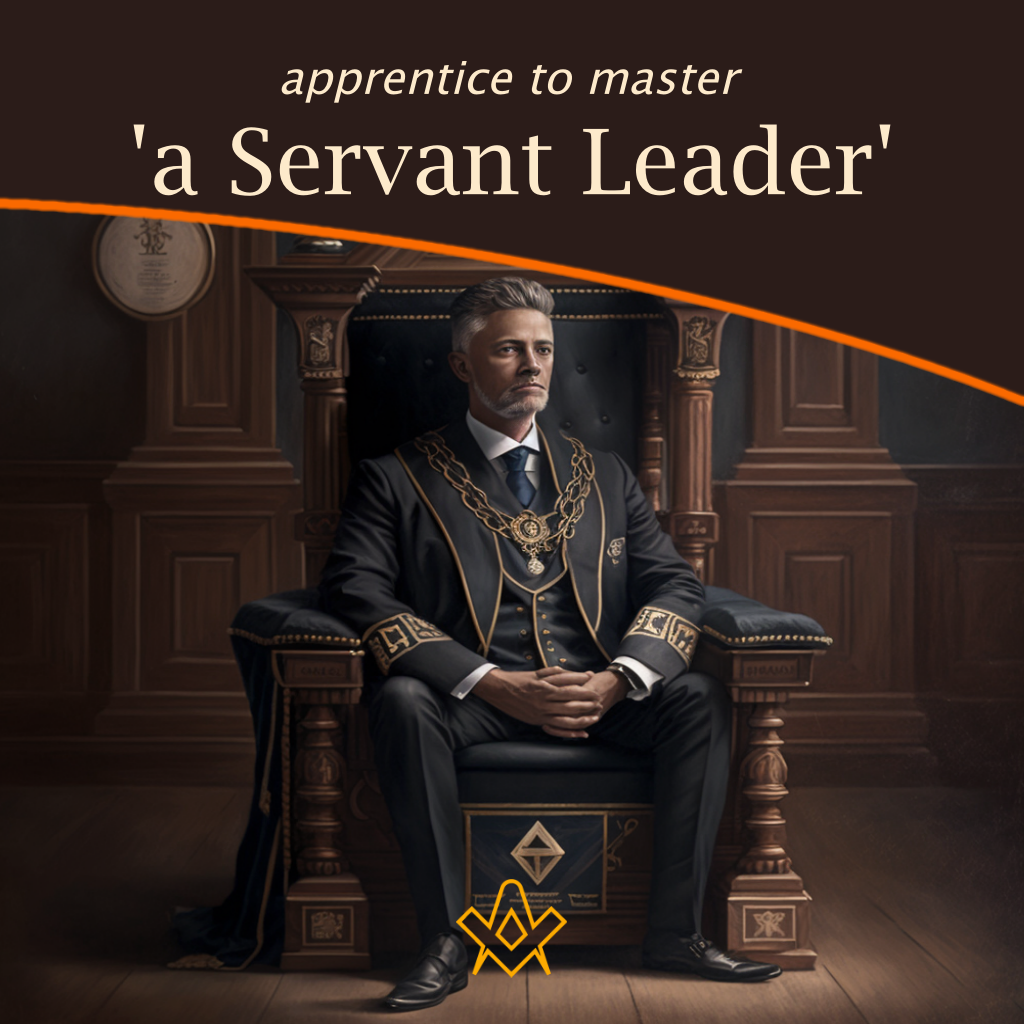Freemasonry is a learning platform used to improve a lifestyle which is morally, educationally and spiritually sound.
To guide a person through life in order to be the best they can be. A Master, or ‘Servant Leader,’ develops those people in their care.
They are someone who can guide others using the principles of Freemasonry.
This organisation is a unique in that it changes its leadership, at ground roots level, annually. This encourages the membership to prepare aspiring candidates to occupy the most senior managerial role in the Lodge, that of Master, over a relatively short period of time.
It achieves this in two ways. Firstly, it encourages aspiring young Masons to occupy progressive offices within the Lodge from Steward to Warden.
Each office teaches a managerial skill required of a Master. Secondly, it provides a place of learning, a Lodge of Instruction, in which the aspiring Mason can be taught and practice that skill, as well as the values of Freemasonry, in a safe supportive environment.
This system of learning builds self confidence and self esteem. It provides an opportunity for the aspiring Mason to be a better citizen, a better partner, a better parent, a better work colleague.
It is a system of morality, taught in a series of short plays or rituals, and illustrated by symbols relating to the craft of stonemasonry which are moralised upon.
For example the twenty four inch gauge represents the twenty four hours of the day and invites the young Mason to reflect on time management and the prioritising and valuation of tasks.
The journey through the offices of the Lodge from Steward to Master is one of a lifestyle choice. So let us take a look at that journey together.
“Brethren, from time immemorial it has been an established custom among Masons for each lodge, once every year at a stated period, to select from amongst those who are past Wardens an experience Craftsman to preside over them in the capacity of Master.”
The introductory statement from the Installing Master at the Ceremony of Installation of a new Master.
How do we identify a brother who has the experience to manage the Lodge? How do we identify an experienced Craftsman? Experience isn’t the length of time one has been a Freemason, it is what a Mason has done in that length of time.
What they have learned and how they have conducted themselves.
Freemasonry has been expertly designed to give a Brother the experience to take on the role of Master and earn the right to be called, ‘Worshipful or Distinguished Brother’. The process of moving from a Steward through the offices to Master
There are many leadership styles from Autocratic Leadership to Servant Leader with various shades in between. For the purpose of this lecture I would like to focus mainly on the ‘Servant Leader’. To me this style fits Freemasonry and its values of service to others.
However, a good leader recognises the strengths and weakness of a variety of different styles and uses those various styles as appropriate.
I will explain the ten qualities of the ‘Servant Leader’ and then show how Freemasonry fits this style of leadership
Ten Qualities of a good Team Leader (Deakin University).
1. Leadership is not all about you
“The principal role of a leader is to enable and empowers a team to achieve both collective and individual goals.”(Deakin University)
The principles of ‘Servant Leadership’ is one which aligns with Freemasonry. It involves , delegation, instruction and training but at its core is the ‘desire to serve’. To serve the Lodge and to serve the community.
How is that achieved in our Lodges?
In order to achieve a goal objectives should be set that are both relevant and achievable. Each of the Principle and Assistant Officers of the Lodge has a role to play. Each role has an achievable objective.
To conduct parts of a ceremony, which, when all the parts are put together, produces a ceremony which is memorable to the Candidate.
In other words teamwork with delegated responsibilities. The end goal for the aspiring Mason is to become the Master of the Lodge and earn the right to be called a ‘Worshipful Brother’. Using a Martial arts analogy, it is likened to becoming a ‘black belt’ in the Craft.
An honour which is a recognition of skill, service and commitment.
It is only by attending Lodge of Instruction can these objectives be met. It is only by attending Lodge of Instruction that commitment can be tested and proved. It is only by attending Lodge of Instruction can relationships be formed and bonds made. It is only by attending Lodge of Instruction can a Mason become skilled in the Craft and fulfil the first requirement of a Master.
FIRST ESSENTIAL QUALIFICATION OF A MASTER
![]()
Every Candidate for the office of Master ought to be of good report, true and trusty, and held in high estimation among his brethren and Fellows
2. Honesty, Integrity and Humility
Throughout our Masonic ritual these three virtues are taught. Honesty is required and tested in the Candidates interviews prior to being accepted.
His integrity is a lifetime commitment to keeping his ‘obligation’ and humility is required whilst being initiated and throughout each of the offices. “Humility in each role is essential.”
Sports referees and umpires are good examples of leaders. They have to demonstrate honesty and integrity because their decisions have a major effect on the outcome.
They are experts in humility. They have core values and behaviour which include identifying strengths and weaknesses and acknowledging that no individual is more important than the group. Where they possibly fail is in the areas of empathy and compassion which are key elements of conflict management.
3. Hold your team (and yourself) accountable
Coaching is a critical skill in leadership. It is at Lodge of Instruction that this takes place. It is a safe environment where an individual, including the Master and Past Masters, can learn, test knowledge and be accountable for their learning.
In the Second Degree opening the WM says, “duly open ……… for the instruction and improvement of Craftsmen.”
A great strength in an individual is to engage in self-reflection, diagnosing any weaknesses before someone else points them out to you.
4. Good leaders make a decisive commitment to a vision
Each Master enters their role with a vision, whether it is for the team to produce a ceremony that is memorable for the Candidate and/or see their Lodge grow and be successful. In order for them to do this they must have experience and recognise the values of Freemasonry.
They gain experience by going through each of the offices and not only learning the ritual but understanding it and its application to the personal development of an individual.
They must be able to think ‘outside of the box’, be creative within the values of Masonry and articulate that vision inspiring others in the process.
SECOND ESSENTIAL QUALIFICATION OF A MASTER
![]()
He must have been regularly initiated, passed and raised in the established degrees of the Order, be well skilled in the noble science, and duly served the office of Warden in a regular Lodge
5. Know thyself and believe in thyself
Daniel Goleman stated in 1998 that, “knowledge about ourselves is essential to improving management skills.” He goes on, “ Education, previous experience and a position of authority can lead to increased self-confidence”.
All these attributes can be attained at Lodge of Instruction and taking part in the ritual.
Commitment to learning and self-development will increase your self-confidence as you go through each of the offices.
However, excessive self-confidence can lead to autocratic, intolerant leadership and arrogance.
It is important, therefore, that we identify and accept our strengths and our weaknesses for it is only in doing so in ourselves that we can accept the same in our team. Honest self-reflection is essential.
In the Address to the Wardens it states:
“What you observe praiseworthy in others you should carefully imitate, what in them you find defective you should, in yourself, amend.”
6. Successful team leaders speak well and listen better
One of the great confidence boosters in Freemasonry is having the opportunity to speak in front of others in a safe and supportive environment. Lodge of Instruction is one of the great learning opportunities in which to master this important leadership skill.
Warren Buffet regularly tells MBA students that, “their degree will give them an edge, but it’s public speaking that will put them ahead of their competitors.”
In order to build self-esteem in both yourself and your team it is essential that you seek and listen to feedback. After participating in a ceremony have a reflection session with a Senior Lodge member or your mentor. It will build your self-esteem and, team feedbacks, when properly facilitated, can boost a feeling of social inclusion.
7. Achieve goals in good time
To be an ‘effective’ leader or ‘Master of a Lodge’, it is essential that you are goal driven. Using the SMART principle – Specific; Measurable; Agreed; Realistic and Time framed.
For example for a ceremony to be effective each officer must know his role and be given a realistic time frame in which to achieve it.
It can be measured at Lodge of Instruction where help, if needed, can be given. Specifically floor work. In the Lodge of Instruction Summons the work for the month is published so officers are well aware of the time frame and where to ask for help if required.
8. Successful leaders master stress management
It can be quite nerve wracking approaching a meeting where you are to deliver a piece of ritual. Put aside time for yourself.
Time for self-care and personal wellbeing. As you go through the offices on the way to the Master’s Chair you will learn coping mechanisms that suite you best.
Talk with others that have gone before and identify their coping mechanisms to find something that will suit you best.
By having an effective daily stress management routine you will be more effective as a leader and what’s more, you will be more pleasant to be around.
Freemasonry in general and the Lodges in particular have a built in program to assist brethren with mental and physical welfare.
The Lodge Mentor can sit down with you and discuss various stress coping mechanisms. The Lodge Almoner is available to help with welfare issues.
Both are only a phone call away and are more than willing to give help and advice. “Seek and you shall find.”
9. Avoid dysfunctions and reward excellence
A successful team leader has an understanding of the ‘Five Dysfunctions of a Team’ (Patrick Lencioni)
Trust
Conflict
Commitment
Accountability
Result
1: ABSENCE OF TRUST. “The fear of being vulnerable prevents team members from building trust with each other”. By creating a safe and supportive learning environment at Lodge of Instruction is the first step towards gaining the trust of Lodge members.
2: FEAR OF CONFLICT. “The desire to preserve artificial harmony stifles productive ideological conflict within the team”. A discussion is not an argument. An environment of mutual respect and an understanding of others points of view, empathy, is essential to preserve harmony within a group. Inside the Lodge there is no political or religious discussion to preserve harmony but outside the Lodge and during committee meetings there is freedom of discussion but it must be within the bounds of Masonic values.
3: LACK OF COMMITMENT. “The lack of clarity and/or buy-in prevents team members from making decisions they can stick to.” Collective and clear goals must be set out at the start of every Masonic year and given to the brethren in order for them to buy into and support it.
4: AVOIDANCE OF ACCOUNTABILITY. “The need to avoid interpersonal discomfort prevents team members from holding each other accountable for their behaviour and performance”. Self-reflection with constructive and supportive feedback is essential in improving performance and personal development. In the Second Degree Charge, “ judge with candour, admonish with friendship, and reprehend with mercy.”
5: INATTENTION TO RESULTS. “The pursuit of individual goals and personal status erodes the team’s focus on collective success”. Ego is the destructive power to team success. It is important as a leader that team excellence is recognised, nurtured and rewarded.
10. Good leaders are lifelong learners
Freemasonry is committed to lifelong learning. The Second Degree acknowledges and promotes this concept. Society changes and in order to remain relevant Freemasonry must change with it without losing its core values.
THIRD ESSENTIAL QUALIFICATION OF A MASTER
![]()
He ought to be exemplary in conduct, courteous in manners, easy of address and steady and firm in principle, able and willing to undertake the management of the work and well skilled in the Ancient Charges, Regulations and Landmarks of the Order
Having set the objectives of a ‘Servant Leader’, how does going through each of the offices develop the young Mason, prepare them for the Master’s Chair and earn them the honour of being called a ‘Worshipful Brother’, a ‘black belt’ Freemason?
As a ‘Steward’ of the Lodge the young Mason is required to assist the Tyler in preparing the Lodge room for the meeting and clearing the Lodge room after the meeting.
In doing so they will learn about the ‘Furniture’ and ‘Jewels’ of the Lodge and with the help of the Tyler or Senior Brother they will learn the moral values of each – the Ancient Charges, Regulations and Landmarks of the Order’.
They learn the roles of the Inner Guard and Deacons in case they are required to fill in those posts in times of absence.
The young Mason is required to wait on the visitors to ensure that they have a good experience, so the young Mason must be ‘courteous in manner and easy of address’.
They are also required to attend Lodge of Instruction on a regular basis showing commitment and establishing a relationship with the Brethren.
By doing these roles he is enhancing his Masonic knowledge as well as communication and social skills.
The ‘Inner Guard’ is the young Mason’s first public speaking role. They must learn their part and speak confidently to the Tyler, Worshipful Master and Junior Warden.
By practice at Lodge of Instruction and putting time aside at home to learn the part he will gradually build in confidence.
The ‘Deacon’s’ role brings with it further development skills. Apart from learning floor work and deportment the young Mason will have to take responsibility of another in the form of a candidate.
Their attitude and their behaviour towards the Candidate will leave a lasting impression on those in their care.
They will also learn about communication, both verbal and non-verbal. All eyes will be on them during ceremonies, so this will build confidence and a presence in front of others.
As a ‘Warden’ the young Mason will learn about leadership. They will assist the Worshipful Master in the well ruling and governing of the Lodge by “communicating Light” and “imparting knowledge” to the Brethren.
The ‘Light’ being the moralisation within the ritual and the knowledge being the ritual itself . These they will acquire at Lodge of Instruction.
They will attend committee meetings to see how they are run and represent the Worshipful Master in their absence. By observing the Worshipful Master in the work they will learn about being a ‘Servant Leader’.
As the ‘Master’, it is their duty “to communicate Light and instruction to the Brethren”. That is to say to deliver the ritual in such a manner that the Brethren will understand and reflect upon the moralisation surrounding it.
Their man management skills will be put to the test resolving conflict should it arise and delegate responsibilities. The address to the Master puts their role in the most eloquent of words.
“Forcibly impress on the Brethren the dignity and high importance of Masonry; seriously admonish them never to disgrace it; charge them to practice out of the Lodge those duties they have been taught in it; and by virtuous, amiable and discreet conduct to prove to the world the happy and beneficial effects of our Ancient Institution, so that when any one is said to be a member of it, the world may know that he is one to whom the burden heart may pour forth its sorrow, to whom the distressed may prefer their suit, whose hand is guided by justice and whose heart is expanded by benevolence.”
Each office has within it an achievable objective. Each objective is a step towards that final goal in Craft Masonry, that of being a ‘Worshipful Brother’.
However, being a ‘Worshipful Brother’ is not the end of the journey but the beginning of another.
The tenth step of a ‘Servant Leader’ is “lifelong learning” and, within Freemasonry, that is by working towards being an ‘Excellent Companion’. Craft Masonry develops the moral, educated and reflective man. The Holy Royal Arch develops the spiritual man.
Enjoy your journey of self-development. Enjoy your Freemasonry.
Article by: Stephen J. Goulding
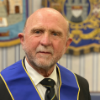
Stephen was initiated into Freemasonry in 1978 in Tylney Lodge No. 5856 (UGLE). He was Master in 1989 & 2004.
He was Master of the Lodge of Union 38 (UGLE) in 2018. He is also a PZ in the Holy Royal Arch and PM in the Mark Degree.
Stephen served 30 years in the Metropolitan Police Service (London, England) before going into education in 2000, where he became a college lecturer and a mentor for both the college and the University of Greenwich (London, England). Now retired, he teaches Tai Chi and Qigong in the community.
Facebook: Steve Goulding-Tai Chi West Sussex–Chi at Chi
Footnotes
Reference
Bibliography
Qualities of good team leaders. Deakin University.
https://leadership.deakin.edu.au/resources/top-10-qualities-of-a-good-team-leader
The Servant as a Leader by Robert K. Greenleaf (1970)
Lodge of Union No. 38 Ritual Book.
Recent Articles: in this tutorial series
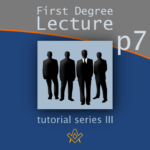 William Preston (1742 – 1818) gives his lectures in the form of a Catechism – questions and answers - and broken down into seven bite size chunks. This article is the first of the seven part series presented by Steve Goulding |
 William Preston (1742 – 1818) gives his lectures in the form of a Catechism – questions and answers - and broken down into seven bite size chunks. This article is the first of the seven part series presented by Steve Goulding |
 William Preston (1742 – 1818) gives his lectures in the form of a Catechism – questions and answers - and broken down into seven bite size chunks. This article is the first of the seven part series presented by Steve Goulding |
 William Preston (1742 – 1818) gives his lectures in the form of a Catechism – questions and answers - and broken down into seven bite size chunks. This article is the first of the seven part series presented by Steve Goulding |
 William Preston (1742 – 1818) gives his lectures in the form of a Catechism – questions and answers - and broken down into seven bite size chunks. This article is the first of the seven part series presented by Steve Goulding |
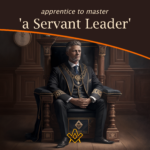 Apprentice to Master, “a Servant Leader”. Freemasonry is a learning platform used to improve a lifestyle which is morally, educationally and spiritually sound. To guide a person through life in order to be the best they can be. A Master, or ‘Servant Leader,’ develops those people in their care. They are someone who can guide others using the principles of Freemasonry - By Stephen J. Goulding |
 William Preston (1742 – 1818) gives his lectures in the form of a Catechism – questions and answers - and broken down into seven bite size chunks. This article is the second of the seven part series presented by Steve Goulding |
 William Preston (1742 – 1818) gives his lectures in the form of a Catechism – questions and answers - and broken down into seven bite size chunks. This article is the first of the seven part series presented by Steve Goulding |
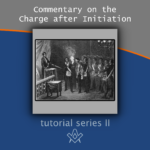 Commentary on the Third Degree Charge The Third Degree Charge invites the candidate to reflect on his life as both a ‘moral’ and ‘educated’ man, and to contemplate on what may be missing in his life. The ‘genuine secrets of a Master Mason’. |
 Commentary on the Second Degree Charge In the second degree we learn about being an educated man. Skilful, not only in the Craft itself but also how to communicate and manage others. This Commentary looks at the second degree charge in detail. |
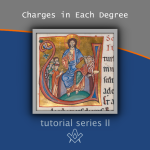 The ‘Old Charges’ have come down to us, containing the rules and regulations by which Lodges should be run and the moral and social standards to which each Lodge member should adhere. |
 Steps to the Making of a Master. The symbolism of each step of the winding staircase is to continue your personal development throughout your life, right up to your last breath in this world. |
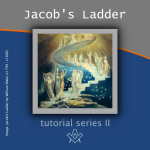 On the First Degree tracing board the most dominant feature is Jacob’s Ladder stretching from Earth to Heaven. Being straight, it is the shortest and quickest way to reach heaven, and being straight you can see the end goal. |
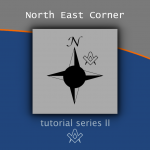 The North East Corner: A Lesson on Charity The ritual of the North East corner is a powerful piece of teaching. Let us examine that piece of ritual more closely; the lesson on charity. |
 When we look at the ritual book the deacons are told to ‘perambulate’ with the candidate. So what does this really mean? |
 The taking of a ‘Vow of Fidelity’. Oaths, Vows and Covenants |
 Morality veiled in allegory and illustrated by symbols A phrase that immediately comes to mind when describing Freemasonry – Morality veiled in allegory and illustrated by symbols. Let us have a look at what this phrase actually means. |
 Officers of the Royal Arch - The Principals The Principals' role in the Royal Arch, representing the pinnacle of spiritual leadership. Their esoteric significance lies in the unity of the three aspects of the divine, emphasizing the importance of harmony and balance in attaining spiritual enlightenment. The Principals embody the ultimate goal of the Royal Arch journey - the realization of divine wisdom. |
 Officers of the Royal Arch - Scribe Ezra Scribe Ezra is portrayed as a crucial figure within the Royal Arch, responsible for interpreting and teaching divine laws. The significance of his role lies in the pursuit of understanding and applying sacred knowledge, emphasizing the transformative power of wisdom when applied to one's life. |
 Officers of the Royal Arch - Scribe Nehemiah Scribe Nehemiah's responsibility within the Royal Arch, is that of preserving the sacred teachings. Scribe Nehemiah symbolizes the importance of maintaining accurate records and upholding the integrity of divine knowledge, thus reflecting the value of safeguarding spiritual wisdom for future generations. |
 Officers of the Royal Arch - The Sojourners The Sojourners, are seekers of truth, their journey symbolizes the spiritual path to enlightenment. Their role in rediscovering lost wisdom highlights the esoteric concept of regaining divine knowledge through perseverance and self-discovery. |
 Commentary on the Charge after Initiation A more detailed explanation in order for us to understand the Charge after Initiation |
 Officers of the Royal Arch - The Janitor The Janitor, is a crucial officer in the Royal Arch. Symbolically, the Janitor represents the guardian of sacred knowledge, ensuring only worthy individuals gain access. This function emphasizes the importance of maintaining spiritual purity and safeguarding the mysteries of the Royal Arch. |
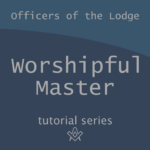 Officers of the Lodge - Worshipful Master Worshipful Master: the highest-ranking officer in the lodge, is the embodiment of wisdom and authority. The Worshipful Master guides the brethren on their spiritual path, representing the divine light that illuminates the Masonic quest for knowledge and self-discovery. |
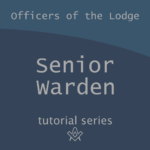 Officers of the Lodge - Senior Warden Senior Warden: embodies the essence of strength and stability within the lodge. As the pillar of support for the Worshipful Master, the Senior Warden symbolizes the fortitude required on our spiritual journey, inspiring us to persevere in the face of adversity |
 Officers of the Lodge - Junior Warden Junior Warden: Ensuring the well-being of the brethren during the lodge's hours of refreshment. Representing the virtue of temperance, the Junior Warden reminds us to find balance in our lives and cultivate moral discipline in our pursuit of truth. |
 Officers of the Lodge - Deacons Deacons: The messengers and intermediaries within the lodge. Representing the communication between the material and the spiritual realms, Deacons symbolize the importance of transmitting knowledge and wisdom as we strive for personal growth and enlightenment on our Masonic journey. |
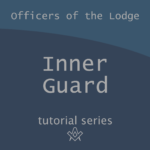 Officers of the Lodge - Inner Guard Inner Guard: Is the first line of defence against unworthy intruders, the Inner Guard represents our inner conscience and the personal responsibility we have to safeguard the integrity of our spiritual journey. |
 Tyler: The significance as the protector of the lodge's secrets and harmony. Tasked with guarding the entrance, the Tyler symbolizes our spiritual and moral boundaries, ensuring only worthy candidates are allowed into the sacred space of Freemasonry's teachings and rituals. |
masonic knowledge
to be a better citizen of the world
share the square with two brothers

click image to open email app on mobile device



